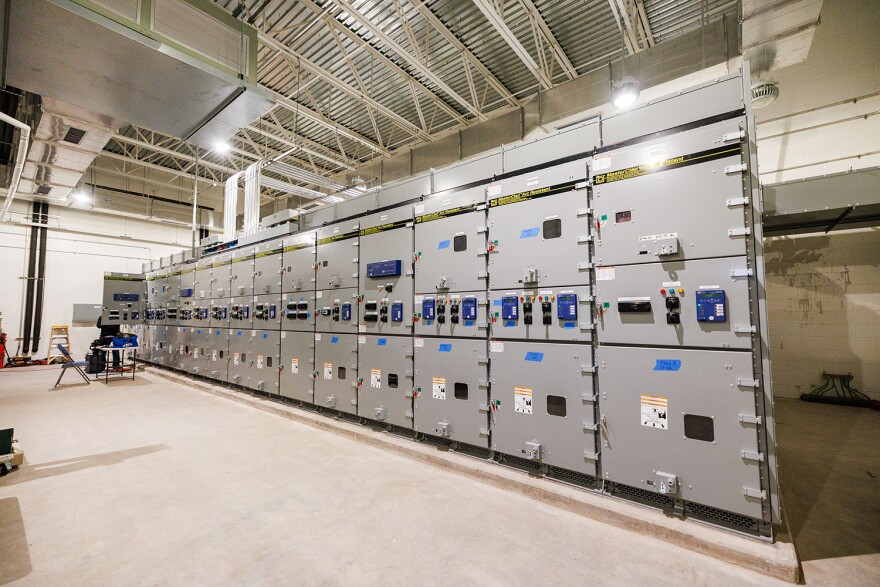If you live in St. Petersburg, you might have been asked not to flush your toilets during last year's hurricanes. That's because several of the city's wastewater treatment plants were forced to close because of storm surge.
So, city officials are ramping up efforts to keep those services working if another storm strikes.
Mayor Ken Welch stood on an 11-foot-high concrete platform, touting the St. Pete Agile Resilience Plan, or SPAR. Part of that plan includes fortifying the city's wastewater treatment plants, including one at the Northeast Water Reclamation Facility.

It will raise up backup generators, so the plant won't have to be shuttered again because of rising waters. Welch said many of those projects were not scheduled to be completed for three to five years.
"What we've done is take aggressive action to accelerate these projects, based on our updated data and our experience with our current realities," he said of predictions of more storm surges to come.
Claude Tankersley, the city's public works administrator, said this is being done not only to keep city utilities running during hurricanes, but also to protect city workers.
“When these neighborhoods evacuated, our employees couldn't. They had to stay here until the last minute and then escape through floodwaters to try to save themselves. We don't want to do that anymore,” he said. “So these projects that we're going to be doing over the next three to five years will help to protect the employees as well as the equipment.”
The new resiliency plan is looking at pouring half a billion dollars into these kinds of investments over five years. The money could come from raising utility rates, issuing bonds or shifting around existing city money.
A funding plan would have to be approved by the St. Petersburg City Council.






